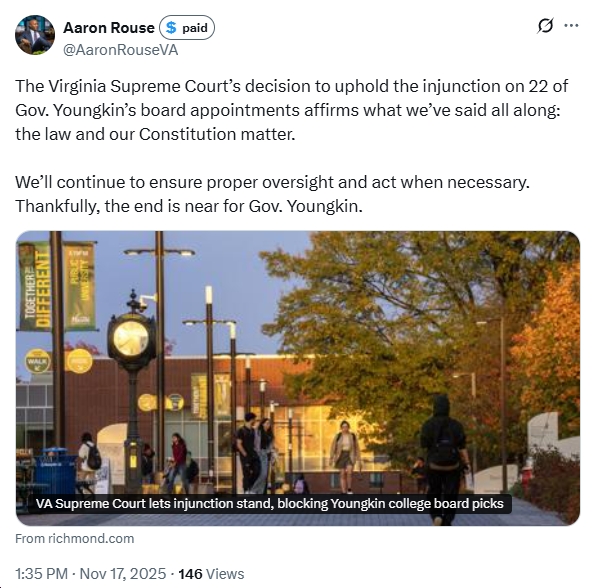by Adam Siegel
To Fairfax County Public Schools (FCPS) Superintendent and School Board Members:
Given COVID-19, you face an incredibly difficult challenge as to how to manage during the coming school year. To be clear, I recognize and appreciate how hard you have been working and how seriously you are taking the challenge of balancing providing education while dealing with pandemic health risks. “You” (as individuals, groups, FCPS administration, …) are taking COVID-19 seriously and are clearly striving — with essentially innumerable complexities, constraints, confused (at best) messaging and guidance from the Federal government, and massive uncertainty about the virus — to create paths that balance providing the best educational opportunity with student, teacher, staff, family, and public health concerns.
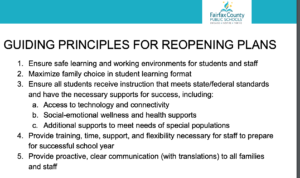
Reinforcing that all have been put in a very difficult situation and are struggling to “do the right thing,” as a concerned citizen and FCPS parent, many elements remain unclear and thus this letter. In a larger context, while FCPS might have been be well advised to take (have taken) a path like the Montgomery County Public Schools (MCPS) (initially 100% online with a phased approach toward (essentially) 100% in-person classes in light of contagion risks from in-person programs), the following provides thoughts and comments operate from the announced FCPS program.
Before engaging in recommendations for consideration and action, some simple truths:
- The COVID situation NEVER WAS and is currently NOT under control in the United States. The nation (writ large) instituted laxer lock-downs than our international counterparts, reopened too early, has had inadequate testing througout, and is loosely and unevenly implementing controlling measures. The result today is that 38 out 50 states are seeing rising cases, rising hospitalizations, and also (starting to see) daily death tolls rising. Cases are rising more rapidly again in Virginia. The rate of reproduction of the virus in Virginia is about 1.13 (up from 0.86 two months ago). This means that the virus is continuing to propagate, since a rate of 1 means it is stable, below 1 means it is receding.
- This virus is very contagious and can be transmitted by asymptomatic persons, which makes protection much harder. Absent a vaccine, the only protections against contamination are hygiene, distancing and masks to protect others from one’s droplets. All the countries that have beaten this pandemic have instituted these measures. It is true that younger people (kids) do not seem as susceptible to the disease as older people, and that several studies indicate young people are also less effective vectors of contagion. And it also seem that not everyone is equally contagious; a so-called ‘superspreader’ (symptomatic or asymptomatic) can infect 30, 40 or 50 people in one interaction. This is no small risk.
- Activities that involve multiple people expelling air (sports, singing, theater) are higher risk. — especially where social distancing is constrained and when in enclosed spaces.
The above are simple truths.
With these truths in mind, and with a focus on the FCPS situation specifically (although many of the below points are relevant for other school districts and across the Commonwealth), here are suggestions for FCPS’ path forward:
Adjust the Curriculum
Educational “face time” with instructors will be 40 percent or less of pre-COVID instructional schedules. High Schools (and middle schools?) are going to have eight periods which will give (generously) 1.5 hours of class time per week. This raises concerns about the ability to provide adequate focus for fostering academic success across the student body. “Slimming” required classes to five would boost this to about 2.5 hours of teacher/student time/week, or close to pre-COVID educational interaction. FCPS could offer additional online classes to allow students to add a sixth (or, well, potentially a seventh) class to their load.
To enable this, FCPS should seek waivers from the Virginia Department of Education as to total graduation requirements and specific annual requirements. This is not an item to be taken lightly, but is an appropriate response to the realities of COVID19 stresses on the society and on our educational systems.
Doing this “slimming” would create resources for addressing other issues discussed below.
Make Timely (aka, Immediate) Decisions re: Highest-Risk Activities
While opening the schools to in-person teaching will create community spread risks, there are activities that clearly cause much greater transmission risks. The educational program will be difficult enough to manage within pandemic risks, without the added complications of these activities. FCPS shouldn’t delay, any longer, dealing with these, as it is inappropriate to expect/ask students, family, and staff to make decisions about in-school/on-line education (deadline 15 July) while deferring decision-making in these arenas.
- Sports and all other in-person extracurricular activities should be cancelled for the fall season (or longer) … now.
- Professional sports leagues, with all their financial and other resources, are having serious challenges managing COVID-19 transmission. Why does FCPS think the school system can manage this better than MLB or the NHL or whatever?
- Deferring decisions on this to NHFS/VHFS is giving proponents decision-making authority. These organizations and individuals want, strongly, sports to continue if they can figure out how to have this happen. No matter how well meaning they are, this inherent bias cannot be discounted.
- High-risk academic programs should be cancelled/curtailed.
- Group singing (choir)/theater/wind instrument playing — e.g., bands (a NFHS(etc) backed study seeks to quantity risks and proposes quite strong measures, with preliminary data, for being able to do band) — are high-risk activities with uncertainty as to the ways and surety of those ways to conduct them in a safe manner
- FCPS should remove this music instruction from the academic curriculum for, at minimum, the first half of the school year.
- Note: FCPS has announced that elementary school chorus will not be offered for the first half of the year.
- Gym cannot be conducted in a safe manner within reasonable resource expectations and constraints. There is too much risk across too much of this from locker rooms, to physical interactions, to students losing sight of safety measures amid excitement of sports, and otherwise.
- Group singing (choir)/theater/wind instrument playing — e.g., bands (a NFHS(etc) backed study seeks to quantity risks and proposes quite strong measures, with preliminary data, for being able to do band) — are high-risk activities with uncertainty as to the ways and surety of those ways to conduct them in a safe manner
- Academy / other programs moving students between schools
- Moving students and faculty across schools and pyramids increases community spread risks and complicates all elements of reducing COVID-19 risks for students, staff, and the community along with increasing complexity of contact tracing when there are coronavirus cases/outbreaks.
- As per below, FCPS should “island” every school, as much as possible, to reduce community contagion risks, ease contact tracing for inevitable infections, and improve the potential for closures being isolated to specific schools.
As part of this, the Superintendent and School Board should make strong statements of valuing the gym/music/theater teachers as educators, and work to find/offer paths for these educators to have rewarding paths to foster healthier and better educated FCPS students.
NOTE: To be clear, I value these activities and educational programs, have serious admiration and respect for the educators in these fields, and do not make these recommendations lightly. These activities, however, create significantly enhanced risk (with complications and uncertainties about paths to reduce risk levels) in an already extremely challenging and high-risk environment.
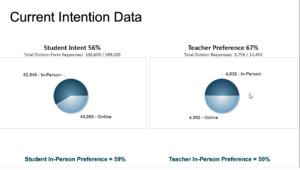
Targeted Tutoring/Monitoring
With the reduced face-time and potentially extensive online program, FCPS faces higher risk of “lost” students. As reducing numbers of classes at Middle School and High School level and removing high-risk classes from the program will free some educator resources, FCPS should (continuously work to) identify potentially ‘at-risk’ students and have educators assigned to be in contact with them to help foster success and provide a tool for alerting the system (counselors and/or otherwise) for when students might require more significant intervention and support. Such an enhancement would increase educational outcomes among the at-risk population and foster more rapid identification of more serious situations.
Wellness Program Curriculum/(Mini-)Class
Across U.S. society, people are struggling with how to cope and manage amid the COVID-19 pandemic. K-12 students and families are no exception. FCPS should target a rapid development (with the Virginia Department of Education and neighboring school systems?) of a “wellness'”curriculum that would be required of all students in the coming year to provide exposure to, education about, and discussion of coping mechanisms and paths to maintain/support physical and mental wellness amid these stressful times. This could be a one-hour online weekly class that could be done for a portion of the year (and, as well, be used to help identify higher at risk students/situations meriting other focused resources like the above targeted tutoring/monitoring).
Islanding
We have all experienced, with stay-at-home and social distancing, physical islanding in the past several months as a key tool to flatten the curve and reduce coronavirus transmission. This concept of creating distinctly separate “islands” should be extended into FCPS’ reopening. In other words, FCPS should seek to operate every school as a distinct and separate island with minimized and very controlled interactions with other “islands.”
Almost certainly, Virginia, Fairfax, and FCPS will face coronavirus outbreaks with needs to control them. If there is an outbreak within an “island,” FCPS will (could) have the option of closing a school or perhaps a pyramid since the contact tracing (within FCPS) will be within specific schools. Without islanding, with continued daily/essentially continuous operations across/between different schools and pyramids, any emergent outbreak will almost certainly have implications across multiple pyramids and require decision-making about potentially closing numerous schools — if not the entire system.
“Islanding” would mean ending special program transportation. This, explosively, might drive a decision to end advanced academic program (AAP) centers and other magnets in elementary schools (is it past time for AAP in every school?). While far from optimal, out-of-district/-pyramid students could stay in programs via the online option. These aren’t easy, optimal, desirable nor necessarily pleasant decisions to make, but islanding would better position FCPS for managing the almost certain occurrence of coronavirus cases that will occur within the school system in the coming school year.
When it comes to online education, FCPS should consider the reverse of islanding: especially for lower demand classes at Middle School and High School (HS) levels. For example, if there is an advanced placement (AP) class that only 30 online choice students desire across the entire county, this would clearly not be enough for a specific HS to support a class while this number would justify having a class to meet the student demand level. Handling online “low-demand” classes as a county-wide (rather than school specific) program could, in fact, increase AP access for many lower-demand courses and open new opportunities for many students from schools with potentially fewer AP opportunities.
Facilities Options
There are numerous facilities management and equipment options and potential paths forward for reducing infectious disease risks amid a pandemic that go “beyond” more intensive/frequent cleaning. For example, ultra-violet systems can be deployed to kill (some) coronavirus. I am not, to be clear, advocating any specific measure but do believe that the Superintendent and School Board should be given (investment) options for facility management and technologies that could help reduce coronavirus risks.
FPAC
As a former Facilities Planning Advisory Council (FPAC) member, I would recommend that the School Board consider making the FPAC mandate for the coming year to assess longer-term implications of COVID19 and online education with, for example, capital investment option implications.
Medical Consideration
Flu vaccine manufacturers are boosting production as public health officials see broader vaccination as critical to reduce the risk structure from flu/coronavirus intersection. While Virginia’s <17 year old vaccination rate of about 70% is reasonably high in the nation, boosting that rate — in the student body and staff — would reduce risks amid the coronavirus pandemic. As a non-medical professional parent of an FCPS student and a member of the community, I would urge consideration of requiring flu vaccine for all students and staff (with only certified medical exceptions) for any/all who participate in in-person education. (Note that the American Association of Pediatrics memo on school reopening emphasizes the value of boosting influenza vaccine rates in K-12 programs.) FCPS is, already, working with the Country medical staff and, if it is not already occurring, paths to boost flu vaccination rates across the county (and especially within the school community) is something worthy of discussion with them. (Perhaps, short of “requiring,” is to have free vaccination provided in the schools for students, teachers and staff, and families) to boost vaccination rates.)
Curriculum/Activities/etc.
- Timely decisions required:
- As of this time, FCPS has yet to make announcements about numerous things that can — for example — influence decisions about in-person/online education. If the “maximum” in-person education, at least for the first half of the year, will be two-days/week in school, the eventual decision is already implied for many of these. Others should clearly be driven by what we already know about COVID19 transmission risk environments. Even while FCPS “waits” for guidance from Richmond and coordination with other NOVA districts, these delays are already having impacts on student planning and these issues must be resolved before students/families are required to finalized decisions about
- Examples:
- Fall Sports: Football/marching band/cheerleading/etc all are now scheduled for a 17 August start; a two-week delay from the planned 3 August start. It is hard to see how FCPS can allow these to occur. This is barely a month away and people are scheduling lives, contracts are being signed, etc. to support these. If they are going to be (as likely) cancelled, this should occur ASAP.
- Theater/Band/Chorus: These, and likely other, educational programs seem at odds with social distancing (even as I strongly support and value each of these … this is a painful comment to write). Each create risk of ’super spreader events’ even without considering performances. These relate to class decision-making and the need to facilitate reassigning these educators, as possible.
- Extracurricular Activities Not Viable
- Numerous extracurricular activities do not seem viable within social distancing guidelines. For example, does any school board member expect FCPS to host Middle School/High School Model UN events (which can bring together 100s to 1000+ students)?
- Recommendation: Announce that any/all extracurricular in-person activities should be considered as not occurring/cancelled with a “special exception” required to have them. And, create a process for groups/clubs to secure that ’special exception’. This includes all exterior group and organization use of the school building which should be kept to a minimum (with a serious challenge coming with the Presidential election).
- Online Should Be Honors/AP “Heavy”
- Writ large, students in honors, AP, and AAP programs/tracks/classes are better prepared intellectually to handle the challenge of online courses.
- FCPS’ reputation is based, in part, on extensive honors/AP offerings and student participation. The online should reflect this.
- Many students will be choosing online due to their own or family members’ medical risks. These students should have full access to FCPS educational opportunities.
- NOTE: This appears to be the reverse of the Superintendent’s approach:
Cannot guarantee all specialty programs or electives; program and course offerings may be limited due to teacher availability and scheduling constraints (https://www.fcps.edu/sites/
- By treating AP enrollment online as across all FCPS, rather than school specific, this will enable greater student access to AP classes/options and better utilization of teachers.
Again, to be clear, the School Board, Superintendent, and the rest of FCPS leadership face serious challenges in a complex, uncertain, high-stakes, and resource-constrained environment. All concerned are working hard to foster a course through these challenges that balances providing educational services while addressing individual and public health risks. There is no perfect solution. There are no absolutely correct paths forward. There are no easy choices. No matter the choice, no matter the path forward, no matter what occurs, these hard-working individuals and groups will face criticisms and complaints. Thus, even as providing the above thoughts and recommendations, all of us should respect and appreciate their dedication to public service in these difficult times.
NOTEs:
- The above derives from and builds on a series of emails and conversations to/with FCPS school administrators and board members over the past month.
- Here is the FCPS Reopen Schools page and a presentation the Superintendent gave the School Board at its 13 July meeting.
- And, as to Betsy Devos’ unhinged attacks on FCPS, School Board member Rachna Heizer has it right.
Betsy DeVos called out Fairfax County schools She doesn't know us very well. We love our kids & staff & won't be bullied into blatantly unsafe plans. She doesn't know me well. No one bullies me into unnecessarily risking lives. If I don't get re-elected bc of it, I'm good. #fcps
— Rachna Sizemore Heizer (@RachnaHeizer) July 8, 2020


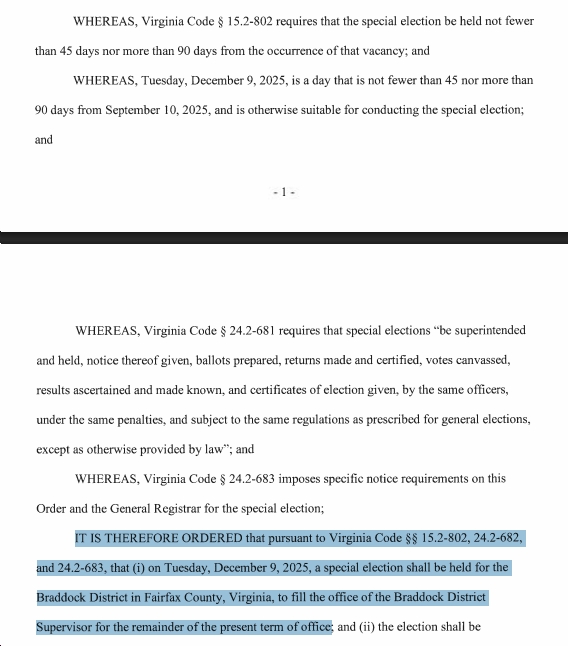
![“We the People for Education” Launches, with Goal of “push[ing] back against organizing from those seeking to divide parents and undermine public schools”](https://bluevirginia.us/wp-content/uploads/2023/03/wethepeopleeducation.jpg)
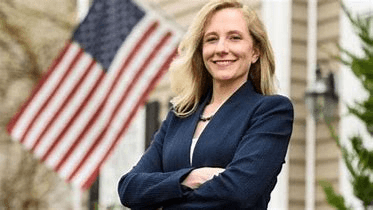
![Virginia NAACP: “This latest witch hunt [by the Trump administration] against [GMU] President Washington is a blatant attempt to intimidate those who champion diversity.”](https://bluevirginia.us/wp-content/uploads/2025/07/gmuwwashington.jpg)
